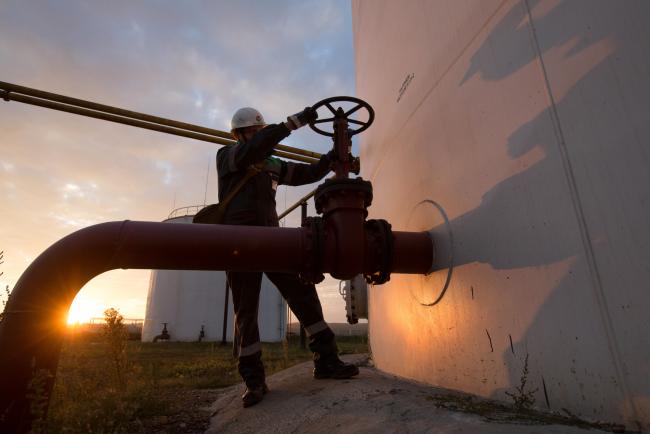(Bloomberg) -- Russia is sticking to its wait-and-see approach on the future of the OPEC+ deal, while its neighbors Kazakhstan and Azerbaijan favor an extension of oil-production cuts due to expire this month.
“We need to wait until the G-20 leaders’ meeting” in Japan this week, Russia’s Energy Minister Alexander Novak told reporters in St. Petersburg. “We’ll see what will be discussed there, how the economic situation will develop.” The Energy Ministry is still holding talks with Russian oil companies on OPEC+ pact options, according to Novak.
Just a week remains before the Organization of Petroleum Exporting Countries and its partners will meet in Vienna to decide whether to prolong the deal. While Saudi Arabia has said a rollover “is almost in the bag for OPEC,” with some adjustments possible for non-OPEC countries, Russia, one of the architects of the current deal, has been holding back amid differing views from its biggest oil companies over the benefits of cooperation.
Rosneft PJSC, Russia’s biggest oil producer, opposes an extension as it would lead to a loss of its market share to the U.S., but its peers Lukoil PJSC and Gazprom (MCX:GAZP) Neft PJSC are in favor of prolonging the deal, which has helped to stabilize crude prices.
OPEC+ needs to understand oil demand in the third and fourth quarters, the pace of growth in the world’s biggest economies and the effects of sanctions before making a decision on the deal, Novak said.
The summit of the Group of 20 may add more clarity. At the last meeting of the leaders of world’s biggest economies in Argentina in December 2018, Russia’s President Vladimir Putin announced an extension of the deal into 2019 after a meeting with Saudi Arabian Crown Prince Mohammed bin Salman.
While Russia is still holding back, its neighbors Kazakhstan and Azerbaijan, the largest oil producers in the former Soviet Union after Russia, said that recent market data show there is a need to prolong the agreement of the OPEC+ coalition.
“It would be right to extend the same regime” unless something happens to change the current situation, Azeri Energy Minister Parviz Shahbazov told reporters in St. Petersburg. Echoing that view, his Kazakh counterpart, Kanat Bozumbayev, said high oil-price volatility is “quite dangerous” and market data for May suggest an extension “on the same conditions seems the right thing to do.”
